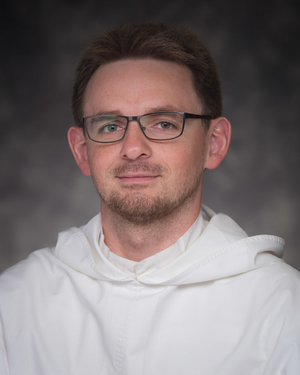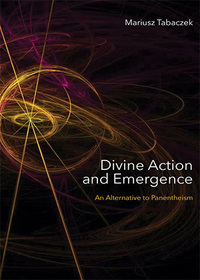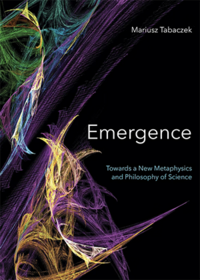
- Professor of Theology
- Pontifical University of Saint Thomas Aquinas
- Affiliation During NDIAS Fellowship: Graduate Theological Union
- Residential Fellow (2016-2017)
- “Dispositional Metaphysics: In Search of Ontology for a Scientific Age”
Mariusz Tabaczek, O.P., recently graduated from the Graduate Theological Union in Berkeley, CA, with a Ph.D. in systematic and philosophical theology. He also holds an S.T.L. degree from the University of Poznan, Poland. He is a member of the Thomistic Institute in Warsaw, Poland. He specializes in science/theology dialogue, with a special emphasis on the role of philosophy. Areas of expertise include systematic theology, theology of divine action, philosophy of science, philosophy of biology, philosophy of causation, contemporary metaphysics in analytical tradition, and new Aristotelianism.
Dr. Tabaczek published articles in Theology and Science (2013, 2015), Zygon (2013), and the proceedings of the virtual conference on science and religion organized by the University of Constanta, Romania (2014). He co-authored two chapters for the new edition of Science and Religion: A Historical Introduction (ed. by Gary B. Ferngren; forthcoming). He is a reviewer for the journal Scientia et Fides.
Dr. Tabaczek was awarded the GTU Newhall Teaching and Research Fellowship (2013), and the CTNS Charles T. Townes Graduate Student Fellowship in Theology and Science in 2014.
Publications
-
Divine Action and Emergence: An Alternative to Panentheism
Notre Dame Press, 2021

As a middle path between classical theism and pantheism, the panentheistic turn in the twentieth century has been described as a “quiet revolution.” Today, in fact, many theologians hold that the world is “in” God (who, at the same time, is more than the world). Panentheism has been especially influential in the dialogue between theology and the natural sciences. Many have seen panentheism as compatible with emergentism, and thus have brought the two together in developing models of divine action that do not abrogate the regularities of processes of the natural world. In Divine Action and Emergence, Mariusz Tabaczek argues that, as inspiring and intriguing as emergentist panentheism is, it requires deeper examination. He begins by looking at the wonder of emergence (which calls into question the overly reductionist attitude in natural science) and by reflecting philosophically on emergence theory in light of classical and new Aristotelianism. Moving in a theological direction, Tabaczek then offers a critical evaluation of emergentist panentheism and a constructive proposal for how to reinterpret the idea of divine action as inspired by the theory of emergence with reference to the classical Aristotelian-Thomistic understanding of God’s action in the universe.
Through a unique interdisciplinary approach that puts theology and the natural sciences into a dialogue through philosophy, Divine Action and Emergence offers a comprehensive evaluation of panentheism. It then puts forward an original reinterpretation of emergence theory, thus setting forth a constructive proposal for reinterpreting the concept of divine action that is currently espoused by emergence theory. It will appeal to scholars of theology and philosophy, those who work in the area of theology and science, those interested in emergence theory or panentheism, and finally those who are interested in the dialogue between the classical Aristotelian-Thomistic tradition and contemporary philosophy and theology.
-
Emergence: Towards a New Metaphysics and Philosophy of Science
Notre Dame Press, 2019

Over the last several decades, the theories of emergence and downward causation have become arguably the most popular conceptual tools in scientific and philosophical attempts to explain the nature and character of global organization observed in various biological phenomena, from individual cell organization to ecological systems. The theory of emergence acknowledges the reality of layered strata or levels of systems, which are consequences of the appearance of an interacting range of novel qualities.
A closer analysis of emergentism, however, reveals a number of philosophical problems facing this theory. In Emergence, Mariusz Tabaczek offers a thorough analysis of these problems and a constructive proposal of a new metaphysical foundation for both the classic downward causation-based and the new dynamical depth accounts of emergence theory, developed by Terrence Deacon. Tabaczek suggests ways in which both theoretical models of emergentism can be grounded in the classical and the new (dispositionalist) versions of Aristotelianism. This book will have an eager audience in metaphysicians working both in the analytic and the Thomistic traditions, as well as philosophers of science and biology interested in emergence theory and causation.